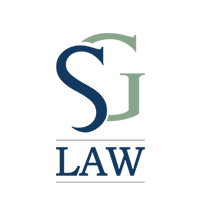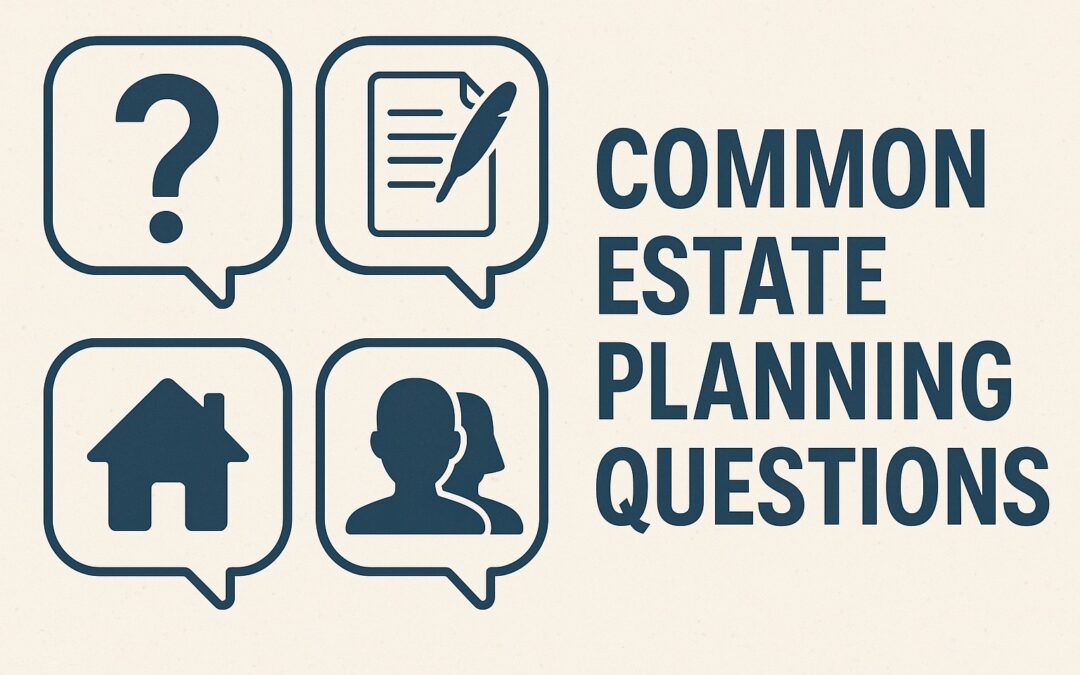Estate planning often brings up a variety of questions, and one of the most frequent topics people ask me about is account ownership and asset management. Knowing how accounts are titled and who can access them is more than just a matter of convenience—it’s crucial for ensuring your assets transfer smoothly to your loved ones while minimizing potential risks.
In this first part of a two-part series, I’ll address some of the most common questions surrounding asset ownership and management. I’ll also share practical steps to simplify things for your family after your passing. Let’s get started with a look at joint assets.
Q: What’s the difference between joint ownership and transfer-on-death designation?
A: Joint ownership means that both parties have equal access to and ownership of a specific account or property during their lifetimes. When one owner passes away, the surviving owner automatically gains full ownership of the asset. While this arrangement can be convenient, it also carries certain risks. Either joint owner can withdraw all the funds at any time, and the account or property may be exposed to the creditors or legal judgments of either owner.
On the other hand, transfer-on-death (TOD) or payable-on-death (POD) beneficiary designations give you sole control during your lifetime. Your designated beneficiary has no access or rights to the account while you’re alive but receives the assets automatically upon your death. This arrangement prevents another person from accessing your assets while you’re alive and avoids the court process (called probate) after you die.
One important note: When you have a joint owner on your account, or a designated beneficiary, that person will receive all the funds after you die, no matter how old they are or what your family dynamics are. This can create conflict in your family or can cause someone who’s financially irresponsible to potentially inherit a windfall with no safeguards. Lawsuits are filed all the time by disgruntled siblings who find out that the caretaker sibling receives all the money in a parent’s account (or sole title to real estate) rather than being distributed equally among all siblings. If this is a concern to you, read on to find out how you can book a call with me to learn about your options.
Q: If I hold my property jointly, or use a TOD or POD, do I need to have a Trust?
If you use joint ownership or TOD/POD instead of a Trust, you need to consider some potential traps for the unwary. First, as mentioned above, jointly owned property could be at risk from creditors of either party.
Here’s a real-life example to consider: a granddaughter (let’s call her Betty) was titled on her grandmother’s bank account. When Betty’s husband Bill didn’t pay the bill on a contract for his business, the company sued and got a judgement against him. Betty was also liable for that judgement. The next thing you know, grandma’s account was garnished because it was held jointly with Betty.
Suppose you use a TOD or POD to avoid a scenario like that. In that case, the problem is that the TOD/POD only operates in the event of death, not incapacity, and TOD/POD could result in the wrong person ending up getting the assets or the assets ending up in probate if there is an unexpected “order of death” issue.
Imagine, grandma leaves house to grandson using TOD, but grandma and grandson are in the car together when there’s an accident, and grandson dies first, with grandma dying shortly thereafter, and before she could change the TOD/POD. Who gets the property, and how? In this case, the property would have to go through probate and pass to grandma’s “next of kin” according to the state intestacy statutes. Given that grandma was leaving her property to grandson, it’s likely she didn’t want the “state’s plan” for her assets. But, that’s what she’ll end up with.
The solution is not to use joint ownership or a TOD/POD to pass title to assets at your death. Instead, set up a trust and retitle the property, and everything can be handled with ease, privately, and in our office, for the people you love.
Q: What happens to retirement accounts and life insurance policies after death?
A: These accounts pass directly to your named beneficiaries, bypassing probate and any instructions in your will, if you have named beneficiaries and haven’t named a minor as a beneficiary. This is why keeping your beneficiary designations up to date is crucial.
If your beneficiary designations are outdated – listing an ex-spouse or deceased person, for example – your assets might not go where you want them to. Even worse, if you have no beneficiary listed, these accounts would go through probate, costing your loved ones unnecessary time and money. If you’ve named a minor as a beneficiary, the assets will be subject to a court process to hold the assets under court order until your minor beneficiary is “of age” – usually 18 or 21, depending on state law.

Q: Do I need an inventory of my assets?
A: Yes, and it’s critically important that you create an inventory and keep it up to date. We include this in all our planning options because it’s one of the most important parts of the planning process, even though, surprisingly, it’s not part of most estate planning with traditional lawyers or legal insurance plans.
Our unique Life & Legacy PlanningⓇ process includes an asset inventory because if you don’t inventory your assets, your family will not know what you have, how to find it, and how to get access to it as easily and affordably as possible. Lost assets end up in your state’s treasury as unclaimed property. According to the National Association of Unclaimed Property Administrators, approximately 1 in 7 people in the U.S. – or about 33 million people – have unclaimed property, totaling approximately $77 billion dollars.
If you want to ensure that your assets go to the people or charities you want rather than to your state government’s unclaimed property fund, you need an asset inventory. And it must stay up to date.
Q: How often should I review my asset inventory and account designations?
A: Your inventory and beneficiary designations need to be kept up to date over time, so they reflect your current circumstances when you die. Your Life & Legacy Plan includes regular, ongoing reviews of your asset inventory so no asset ever gets lost.
It’s also important to update your asset inventory and account designations whenever you experience a major life event such as:
- Moving to a new state
- Purchase or sale of significant assets
- Marriage or divorce
- Birth or adoption of a child
- Starting a business
- Retirement
- Death of a beneficiary
When you work with me, you won’t have to remember this on your own. I’ll remind you to update your inventory and beneficiary designations and help make it easy for you to act.
Q: What’s the best way to organize and store my asset information?
A: Create a clear, organized system that your loved ones can easily access if something happens to you. However, be careful about including sensitive information like passwords in your will, as it becomes public record after death. Instead, consider keeping this information in a secure location and telling your trusted family members, executor, or trust administrator how to access it. I will help you explore options for the best way to do this when we work together.
How We Help You Get Organized and Protected
As your Personal Family Lawyer® Firm, we help you create a comprehensive Life & Legacy Plan that includes a complete asset inventory, proper account titling, and coordinated beneficiary designations. We’ll help you understand the implications of different ownership structures and guide you in making the best choices for your family’s unique situation. Plus, we’ll help you keep everything updated through regular reviews, ensuring your plan continues to work as intended. You’ll gain peace of mind knowing that your assets will go to the people you want in the way you want.
Click here to schedule a complimentary 15-minute Life & Legacy information session to learn more*:
*Please note that these information sessions are exclusively dedicated to Life & Legacy planning. If you need to schedule a consultation for other matters, please contact us here.
This article is a service of SG Law PLC, a Personal Family Lawyer® Firm. We don’t just draft documents; we ensure you make informed and empowered decisions about life and death, for yourself and the people you love. That’s why we offer a Life & Legacy Planning Session™, during which you will get more financially organized than you’ve ever been before and make all the best choices for the people you love. You can begin by calling our office today to schedule a Life & Legacy Planning Session™.
The content is sourced from Personal Family Lawyer® for use by Personal Family Lawyer® firms, a source believed to be providing accurate information. This material was created for educational and informational purposes only and is not intended as ERISA, tax, legal, or investment advice. If you are seeking legal advice specific to your needs, such advice services must be obtained on your own separate from this educational material.

